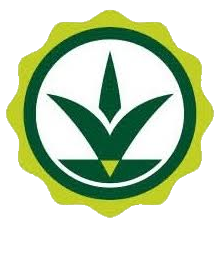FAQ
Q: What is Fertasa and what does it mean for agricultural producers?
A: Fertasa is the “Fertilizer Association of Southern Africa” and currently has 70 members. It was previously the FSSA or Fertilizer society of South Africa. h h Members of Fertasa are active in the fertilizer, biofertilizer and agricultural limestone industries. Members must comply with a stringent Code of conduct and industry specific standards regarding quality and legislative specifications. Consumers of fertilizer products can therefore be assured that Fertasa members are committed to supplying quality products that comply with specifications.
Q: The fertilizer quality control scheme has been implemented again. What does this entail?
A: Grain SA, The Sasol Agri-trust, Omnia Fertilizer, DAFF and Fertasa are managing this project which was again implemented in 2017. 134 fertilizer samples from 24 different companies and 9 agricultural lime samples from different companies were analysed and evaluated. The results were very good with more than 95% of the fertilizer analyses complying with regulations. Agricultural limes also did well and only 1 lime did not comply with the CCE regulation. The scheme will according to planning, continue in 2018.
Q: Bio fertilizer seems to be the new “star” in the fertilizer industry. What is it and what does it mean for the crop producer?
A: Biofertilizer refers to any fertilizer product that is of biological origin. These products mainly increase the effectivity of inorganic fertilizer. “Stewardship” regarding the environment and actions carried out is becoming increasingly important in crop production. It is Fertasa’s belief that the application of effective Biofertilizers will enable improved stewardship of inorganic fertilizers.
Q: What is the situation with new legislation for the fertilizer industry?
A: Consensus has been obtained in the fertilizer industry regarding the principles to be included in the new Fertilizer Bill. This has been communicated to DAFF. When the necessary processes have been carried out, the Act will be published in the Government Gazette. Until that time Act 36 of 1947 will remain.
Q: Why is it important for Fertasa to stay in contact with DAFF?
A: Effective communication with DAFF is essential to ensure compliance with regulations and to solve problems that may arise.
Q: Over and under fertilization is frequently debated. Where can agricultural producers get good fertilization guideline for their crops?
A: This matter is frequently discussed. Over fertilization is mostly discussed when drought conditions are encountered. Fertilization guidelines for almost all crops grown in South Africa are given in Fertasa’s Fertilizer Handbook or Bemestingshandleiding. The guidelines are all based on scientific research data. The well known FACTS/BASOS is based on this handbook. Any fertilization programme should however be continuously evaluated to ensure effective fertilization. Crop producers are advise to employ expert services preferably conducted by SACNASP registered scientists, many of which are employed by Fertasa members.
Q: Where can one find Soil Sampling Equipment?
A: Johnson’s Soil Augers – 011 516 0009


